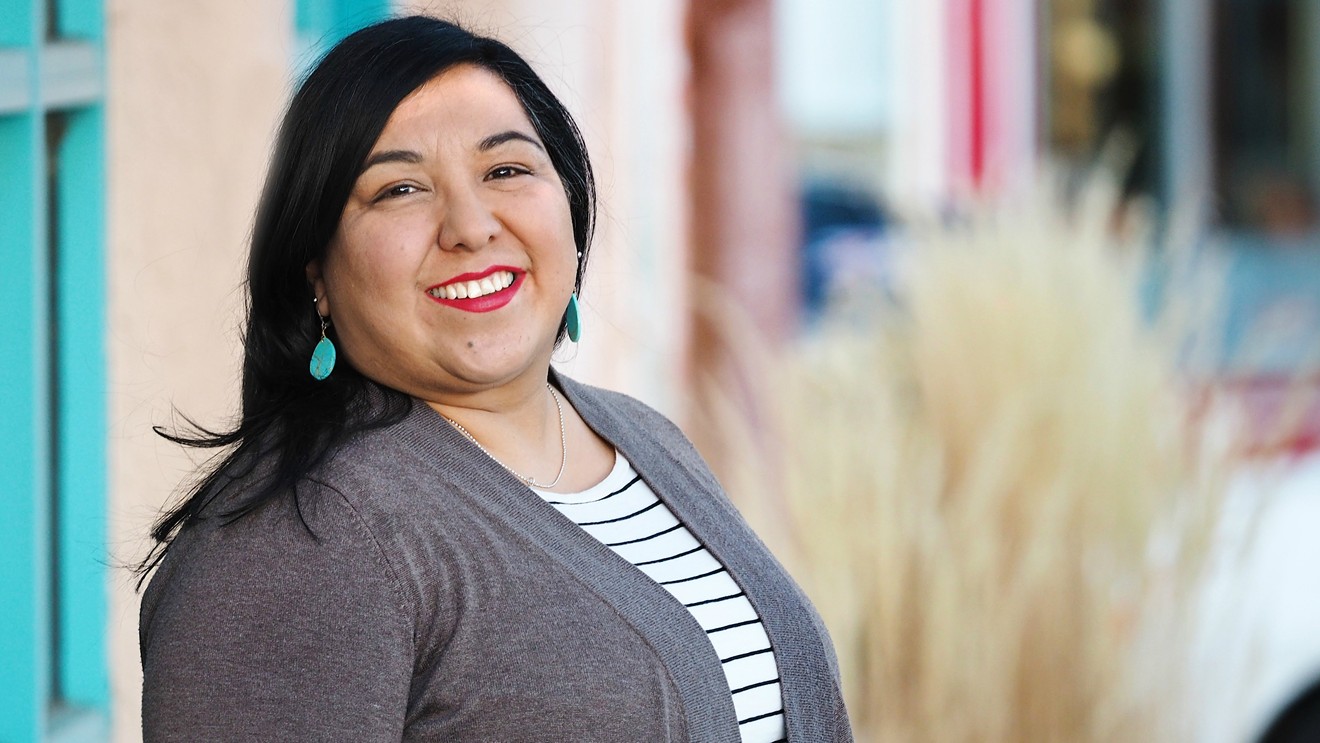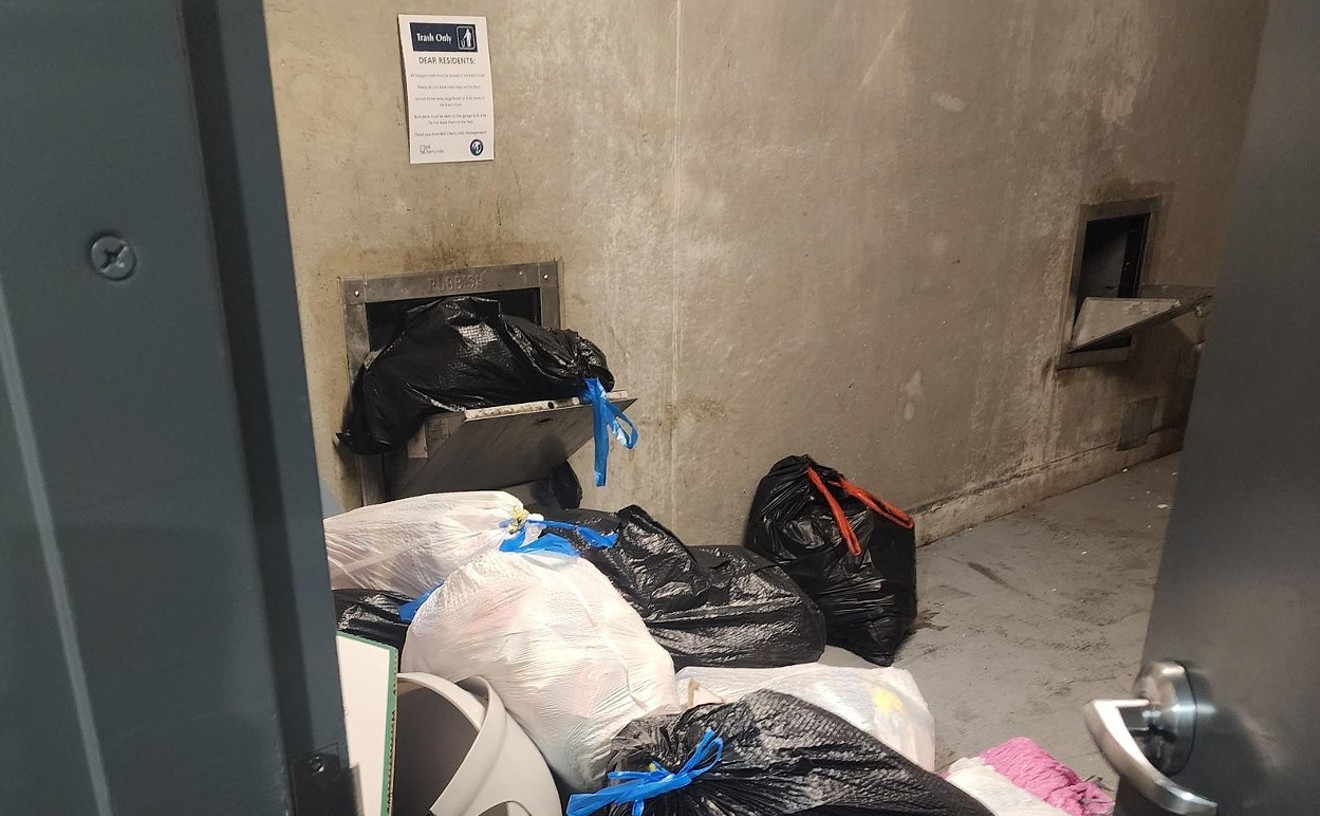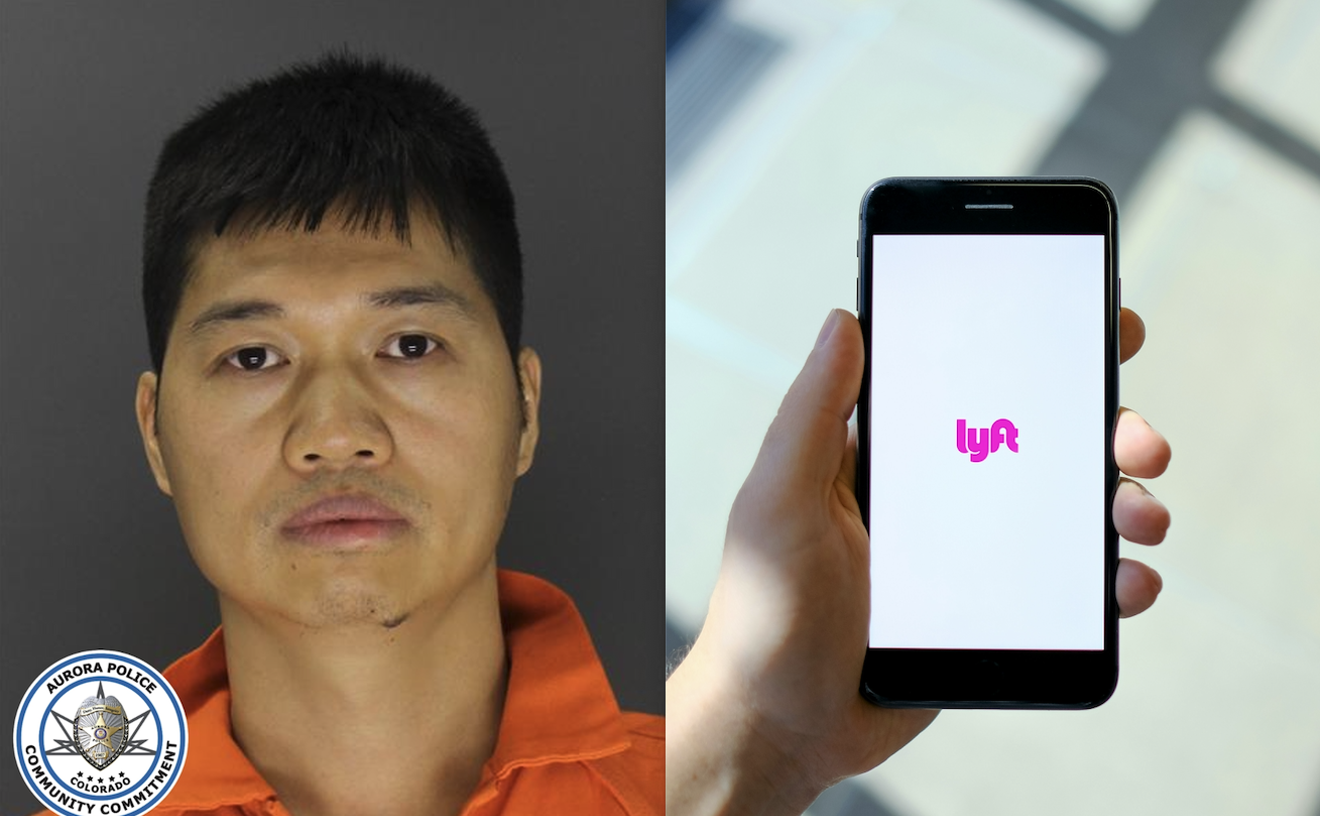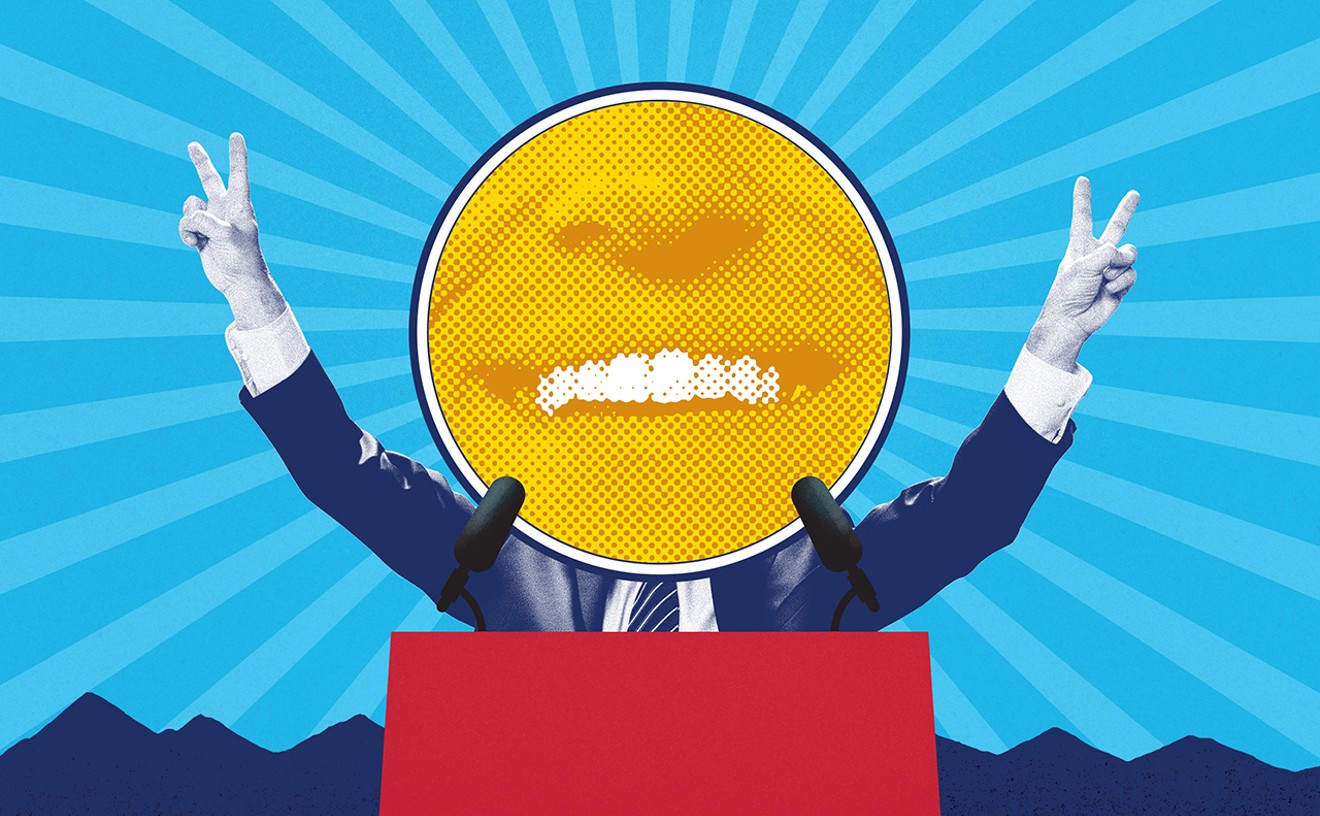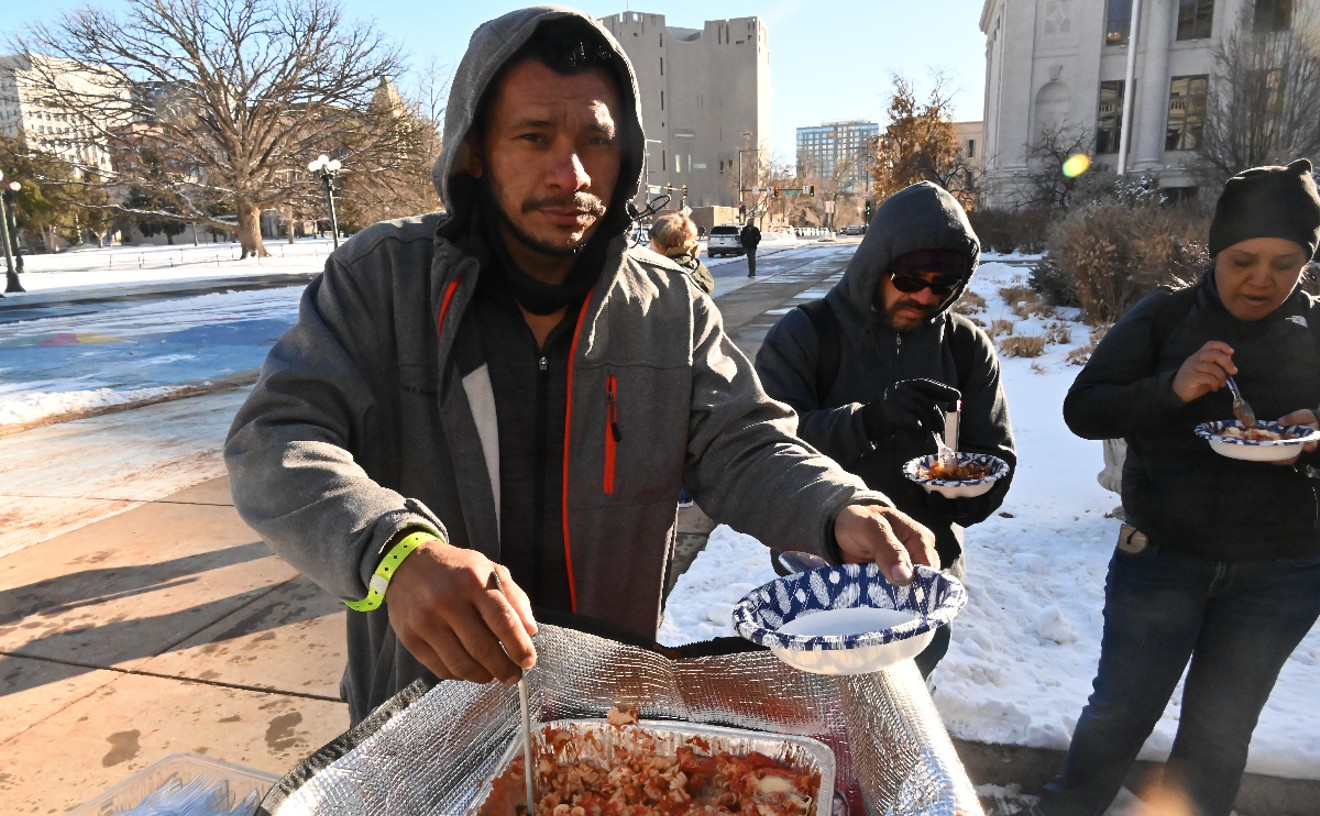The results of the May 7 Denver election didn't settle every contest. The mayor's race between incumbent Michael Hancock and challenger Jamie Giellis will be decided by way of a June 4 runoff, and so will the competition for five high-profile Denver City Council positions, whose winners will help determine the future of the community for years to come.
City council candidates who earned more than 50 percent of the vote in the May 7 election avoided the runoff; the pair of at-large seats won by incumbents Debbie Ortega and Robin Kniech were exceptions. If no one vying for membership in specific districts hit that mark, the two top finishers advanced to the second round on June 4. Four candidates appeared on the ballot for District 3, with Jamie Torres, at 40 percent, and Veronica Barela, at 36 percent, leading the field. Current District 3 councilmember Paul López was precluded from seeking re-election because of term limits, but he's on the runoff ballot, too, as a top finisher (along with Peg Perl) in the race for Denver clerk and recorder.
We submitted the following questions via email to the ten city council finalists: District 1's Mike Somma and Amanda Sandoval, District 3's Torres and Barela, District 5's Mary Beth Susman and Amanda Sawyer, District 9's Albus Brooks and Candi CdeBaca, and District 10's Wayne New and Chris Hinds. All of them agreed to participate.
Get to know more about District 3 candidate and Denver official Torres below.
Westword: How would you describe yourself and the reasons you decided to run for city council?
Jamie Torres: I’m born and raised in Denver’s District 3, and I am a third-generation Denverite. The easiest decision I made when looking for where I would put down my own roots was to do it in Villa Park, the neighborhood that gave me memories, mentors, challenges and victories. It is a community that I love and work tirelessly for. I have a bachelor's and master's degree in anthropology, and I chose to become an anthropologist because I wanted to learn from community, work with them to solve their most pressing concerns, and share with the world their talents and assets.
I believe it’s important for our elected leaders to have lived experiences that give them the insight and understanding of their neighbors’ lives and who will tackle the toughest issues for the most vulnerable and underrepresented among us. I’ve spent nearly two decades working within Denver government advocating for residents, marginalized voices and experiences that often go ignored or dismissed. I’m currently the deputy director of the city’s agency for Human Rights & Community Partnerships and the founder and director of the Office of Immigrant & Refugee Affairs. I thrive on innovation, collaborative potential and showcasing the phenomenal value that diversity, equity and inclusion bring. I’m running to work with the residents of District 3 and represent the voices for the future of West Colfax, Villa Park, Barnum, Barnum West, Westwood, Mar Lee, Sun Valley and La Alma/Lincoln Park.
What makes your district unique?
District 3 has been my home for 32 years of my life. Today’s District 3 is proudly home to Mile High Stadium (yes, I still call it that), Santa Fe Arts District, Westwood Creative District, the best Vietnamese food in Denver and the best Mexican food in Denver. It is also where you find some of Denver's greatest income inequality, communities primed for development and growth, neighborhoods that want to retain their single-family home feel and others that are ready to see more density and, with it, a grocery store and small-business corridor growth. District 3 is full of extremes, contradictions, diversity, passion and motivation. I have seen this district mobilize for what they need and, thankfully, this is not slowing down.
What is the biggest issue affecting your district?
Certainly the issue on everyone’s minds is housing and displacement of our low-income and working-class residents, which have always been the backbone of the west side. I’m optimistic that the upcoming renovation of Denver Housing Authority sites at Sun Valley and Westridge will bring more affordable units while preserving public housing in full. But we will have a number of challenging times ahead, as each neighborhood sees increasing property values as a push factor for long-term residents. It is time to put families and residents first in Denver and consider preserving what we love through policy and thoughtful planning and action with transparency and collaboration with city agencies and community.
Now that the Right to Survive ordinance has been defeated, how would you address the issues of homelessness cited by both the measure's supporters and its opponents?
I would fully empower the new Housing and Homelessness department in the city to make small and big changes. From a council seat, this might look like increased oversight, establishing and monitoring timelines with a sense of urgency, helping support the work with resources and community-centered processes at my disposal in order to see true progress. I am interested in seeing a reform of how sheltering is provided throughout Denver to include 24-hour shelters, inclusive policies and non-discrimination policies adopted by anyone receiving municipal funding, accessory dwelling units (ADU), zoning overlays created in all single-family home neighborhoods and tax incentives for renting out to homeless/formerly homeless residents. We cannot let the 81 percent vote against Initiative 300 be the end of this matter. We have not yet solved anything.
How would you tackle Denver's affordable-housing issues?
The city needs to bring all options forward, including: social impact bonds for holistic housing with support services, public housing investment, higher wages, local-hire practices, tiny homes, supporting condo development, co-housing policies, accessory dwelling unit development, tax incentives, tax penalties for out-of-state owners. On city council, I would have the most direct influence over land-use decisions, community engagement collaboration and accountability, all of which tie strongly into influencing true change.
How concerned are you about gentrification in your district, and what can be done to strike the right balance?
Very concerned. Gentrification is created through policy, and it can be countered through policy that should be holistic, with implementation that is transparent and collaborative. District 3 was part of Denver’s original redlining territory. This meant, in part, that it was last considered for investment. We are only one generation away from race-based covenants, which disallowed selling property to anyone who was not white. The impacts of these policies remain, even when the laws are no longer on the books. We have started an initiative in the city called the Race & Social Justice Initiative, which will require a tool kit to be used anytime we invest city dollars in the city. I will continue to support the growth and development of this initiative and will want to see it used in projects throughout District 3.
Do you support rent control in Denver?
I do support rent control and want to be able to have that conversation in Denver, but I also realize this is a much bigger process that needs to start at the state legislature.
Would you expand the tiny homes concept? If so, how? If not, why not?
Yes, tiny homes should be one of the options brought forward, and I believe every single council district should work to help build a tiny-home village within their district as one way to bring diverse housing options forward.
Would you support a higher minimum wage in Denver? If so, where would you like to see the minimum wage set?
Yes, eventually. I would first like to address the rest of Denver receiving the $15 minimum wage that city employees recently received.
Is development in Denver being done responsibly?
During the recession, District 3 experienced some of the worst foreclosure rates in the country, which allowed some to acquire foreclosed property cheap and flip or scrape, which are true private-property rights. The city anticipated that the recession would end, and it was deliberate in allowing for investment into the city to help Denver recover. What we lacked were tools in this implementation and an eye for equity. The process for solutions needs to include the community of District 3 with transparency and collaboration between city agencies.
What should be done to address problems related to traffic and traffic safety in your district?
We are currently watching and experiencing long-needed improvements to Federal Boulevard, which is directly connected to improving traffic safety, particularly for pedestrians (Vision Zero corridor). This process, and others before it, exposes the complex intersection of addressing a local concern (safety and aging infrastructure) with the necessary collaboration between local and state (Colorado Department of Transportation) entities and community needs and input. But traffic issues have a lot to do with single-occupancy ridership clogging our streets, and unaffordabiilty of public transit for many low-income, senior and working-class riders in west Denver. I want to work with existing advocacy organizations that have been working on mobility, safety and affordability of transit recommendations in west Denver for several years. I also look forward to voters approving the development of a transportation department in the city and what it begins to take on. It will be important for this new department to truly listen to the transportation needs of District 3 residents as it develops its priorities.
What improvements do you believe should be made to Denver's public-transportation system?
I’ve been a rider of RTD buses since I was a kid, when I would ride with my mom to Auraria campus, where she went to school. It’s a critical part of daily existence in District 3. One of the factors I considered when I bought my home in Villa Park was that it would be near the west light-rail line and that I looked forward to riding it into work. The fact is, I rarely take the light rail in. I prefer the bus, because the light rail only takes me to Union Station — the opposite end of downtown from where I need to be. My experience overall with Denver’s public transit system is that it has an overarching purpose of bringing people from the outskirts of Denver to its core, but not much emphasis on getting to key destinations out around the city. This needs to change; otherwise, there is no real alternative to driving your car. I was recently witness to broad community organizing in Westwood that finally brought back the #4 bus, which travels down Morrison Road between Alameda and Sheridan. It was a monumental effort to convince RTD that this bus was needed in a high-need neighborhood. Finally, I would like to see fares restructured and older adults added to the fare discount matrix.
Would you work to expand Denver's bicycle network? If so, how?
Yes, especially in partnership with Public Works as they update the Denver Moves bicycles plan and align it to the peds and trails plan. Connecting trails and paths throughout District 3 to on-street bike lanes is an ongoing priority.
Would you welcome social consumption venues of the sort envisioned in a bill passed by the state legislature in your district? If so, why?
I would as long as they followed similar rules as recreational dispensaries and remain a safe distance from schools.
What can and should be done to improve law enforcement in Denver?
I believe that a combined assurance of resources necessary for law enforcement to do their jobs safely as well as deep community connectivity to improve resident relationships are necessary to build trust with law enforcement. When I started working for the City of Denver, it was with the Public Safety Review Commission, which was the law enforcement oversight group that preceded the Office of the Independent Monitor (OIM). The OIM is doing strong and necessary work that must continue with independence and access. Additionally, their work bridging cops and kids (and parents) is phenomenal and should be expanded.
Would you like the city council to have more mechanisms to keep the mayor accountable? If so, what changes would you like to see?
I don’t believe any elected official in Denver should exist outside the law or of consequence, so I would want to look at all options available to hold the mayor accountable. I have worked in city government under four mayors and have found a number of strategies, largely collaborative and strategic, to hold them accountable to ideas and commitments to community.
Are there other major issues we haven't mentioned that are important to you, and if so, what are they?
I established the Office of Immigrant & Refugee Affairs in Denver in 2005; so continuing to meet the needs of our newcomers remains a key priority for me. District 3, in some neighborhoods, is 30-50 percent immigrant, and those neighborhoods have been seeing more community move in over the past decade. This produces some of the greatest community vibrancy in the city, but it also demands attention to needs that often go overlooked, like discrimination, wage theft, systemic oppression and lack of language access. It will be a priority of mine to ensure that all residents in District 3 are fully represented, no matter what neighborhood you live in, what income you earn, what status you have, or whether you voted for me or not. We are building a community together.
[
{
"name": "Air - MediumRectangle - Inline Content - Mobile Display Size",
"component": "12017618",
"insertPoint": "2",
"requiredCountToDisplay": "2"
},{
"name": "Editor Picks",
"component": "17242653",
"insertPoint": "4",
"requiredCountToDisplay": "1"
},{
"name": "Inline Links",
"component": "18838239",
"insertPoint": "8th",
"startingPoint": 8,
"requiredCountToDisplay": "7",
"maxInsertions": 25
},{
"name": "Air - MediumRectangle - Combo - Inline Content",
"component": "17261320",
"insertPoint": "8th",
"startingPoint": 8,
"requiredCountToDisplay": "7",
"maxInsertions": 25
},{
"name": "Inline Links",
"component": "18838239",
"insertPoint": "8th",
"startingPoint": 12,
"requiredCountToDisplay": "11",
"maxInsertions": 25
},{
"name": "Air - Leaderboard Tower - Combo - Inline Content",
"component": "17261321",
"insertPoint": "8th",
"startingPoint": 12,
"requiredCountToDisplay": "11",
"maxInsertions": 25
}
]

